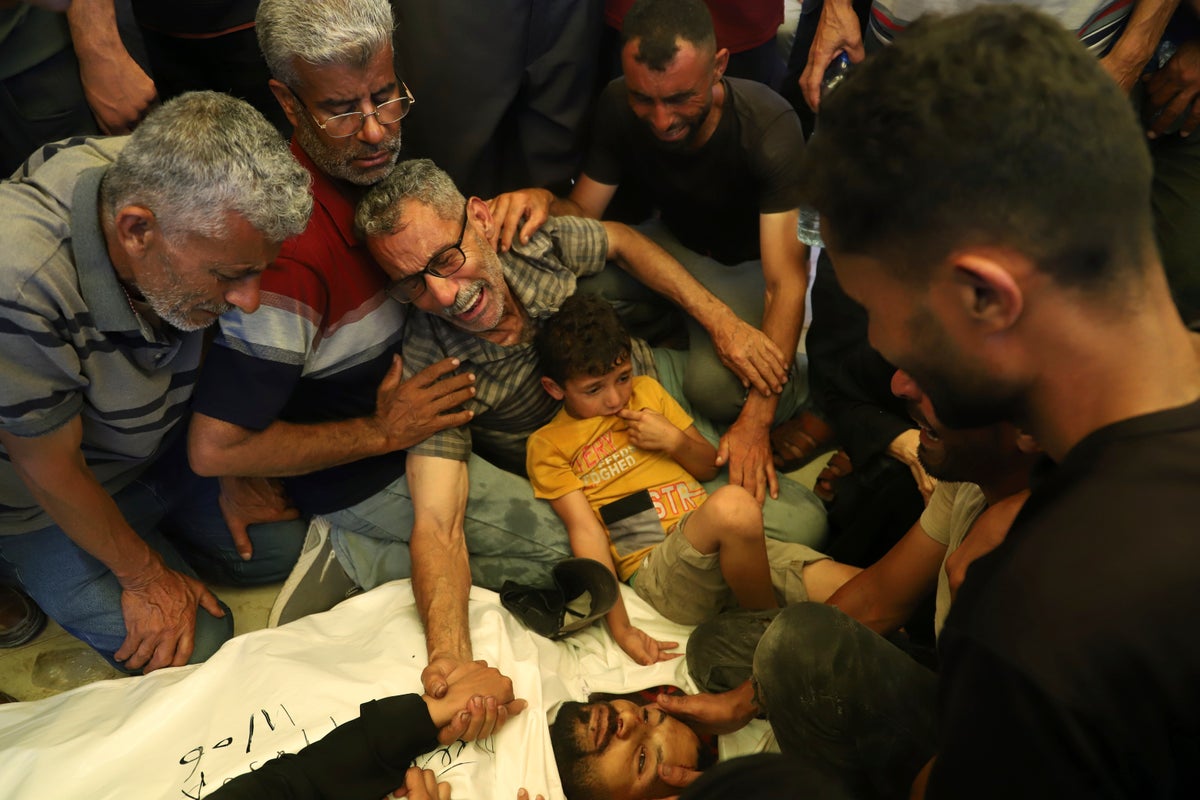At least 60 Palestinians were killed in Israeli airstrikes and gunfire across Gaza on Wednesday, with several of the victims struck near aid distribution points run by the controversial Gaza Humanitarian Foundation, according to local Palestinian health authorities.
Staff at Shifa and Al-Quds hospitals reported that 25 people were killed and dozens wounded by Israeli fire before dawn while approaching a food distribution centre near the former Israeli settlement of Netzarim in central Gaza.
The Israeli army claimed that its troops fired warning shots at people “posing a threat” in the area. “This is despite warnings the area is an active combat zone,” it said, adding that reports of injuries were under review.
Later in the day, medics at the Nasser Hospital in Khan Younis said at least 14 more Palestinians had been killed heading towards another GHF site in Rafah.
The GHF, which began operating in May, said it distributed around 2.5 million meals on Wednesday alone, bringing the total to more than 16 million thus far. The group, backed by Israel and the US, emphasised the need for civilians to follow passage instructions coordinated with Israeli forces.
The GHF also said five of its Palestinian staff were killed in a separate incident which it attributed to an attack by Hamas on a bus west of Khan Younis. “We will continue our mission to provide critical aid to the people of Gaza,” it said, while expressing fear that some workers might have been taken hostage.
According to the Palestinian health ministry in Gaza, Israel’s war on the besieged territory has so far killed more than 55,000 people, mostly women and children. That assault started after nearly 1,200 people were killed and 251 taken hostage during a Hamas raid on southern Israel in October 2023.
The Israeli air and ground assault has also left over 127,000 Palestinians injured and likely trapped more under the rubble of destroyed buildings.
The UN has refused to coordinate aid through the GHF, criticising its use of private contractors and Israeli military escorts as incompatible with humanitarian principles.
It warned that mass displacement and hunger were worsening in Gaza, with the entire population of over two million people at risk of famine.
Israel claims that the new aid system prevents Hamas from diverting supplies, but leading aid groups reject that justification saying there is no evidence of large-scale diversion and that the arrangement breaches neutrality.
Amid the escalating crisis, Israeli prime minister Benjamin Netanyahu announced that the army and Shin Bet, the domestic intelligence agency, had retrieved the bodies of two more hostages from Khan Younis. One was identified as 59-year-old Yair Yaakov, who was killed during the October assault. His partner and two children were among the hostages later released under a temporary ceasefire.
Israel says 53 hostages remain in Gaza, with fewer than half believed to be alive. The latest recoveries bring the total number of hostage bodies retrieved this month to five. Defence minister Israel Katz described the retrieval as a “complex” operation without providing details.
Hamas is demanding full Israeli withdrawal and a lasting ceasefire in exchange for the remaining hostages. It has also offered to transfer power in Gaza to an independent Palestinian committee but has refused to disarm.
Mr Netanyahu, however, insists that Israel will pursue the war until Hamas is defeated or exiled. He demands any future ceasefire to be only temporary and facilitate the return of hostages.
He has also spoken of facilitating “voluntary emigration” of Gaza’s population, a plan condemned by Palestinians and the international community as ethnic cleansing.

